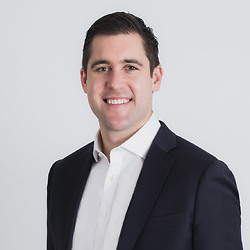Professional Services Performed Outside Covered Territory Precludes Coverage for Medical Negligence Claim
The Court of Appeals of Wisconsin has held that the “location endorsement” in a professional liability policy precluded coverage for a medical negligence claim where the insured’s liability was “connected with” professional services performed outside the covered territory. Paynter v. ProAssurance Wisconsin Ins. Co., 2019 WL 4018339 (Wis. Ct. App. Aug. 27, 2019).
The insured, an ear, nose, and throat physician, practiced out of offices in Wisconsin and Michigan. On two occasions in 2010, the physician met with a patient who sought an examination for a growth on his neck. Both visits occurred at the physician’s Michigan office. After the second visit, the physician sent samples to a pathologist in Wisconsin for evaluation. Upon reviewing the pathologist’s report, the physician called the patient from his Wisconsin office and advised that the growth was not cancerous, and that the patient did not need further treatment.
In 2014, the patient was diagnosed with cancer and had the growth removed. Subsequent tests revealed that the cancer had been present in 2010 and was detectable on the original pathology slides. The patient then sued the physician and his medical malpractice insurer for negligence.
The insurer denied coverage for the claim based on the policy’s “location endorsement,” which precluded coverage for “any liability arising from, relating to, or in any way connected with the rendering of or failure to render professional services by [the physician] . . . in the State of Michigan and/or outside the State of Wisconsin.” The patient argued that the location endorsement did not apply because the patient’s theory of lability – the physician’s allegedly negligent diagnosis that the growth was cancer-free – did not “arise from” the services provided in Michigan, but from a phone call made by the physician while in Wisconsin.
The court disagreed, finding that the patient’s interpretation was “fatally flawed” because it failed to recognize that the endorsement lead-in language also included “relating to, or in any way connected with.” The court held that the initial consultation and subsequent procedure, both of which occurred in Michigan, “were clearly ‘connected with’ the preparation of the pathology report, the results of which [the physician] incorrectly communicated to [the patient].” Because each event was part of a single course of treatment, the court found that the physician’s liability was “connected with” professional services rendered in Michigan, and it therefore concluded that the endorsement unambiguously barred coverage for the claim.


